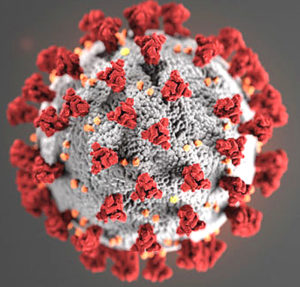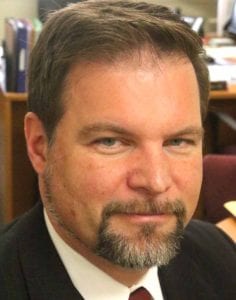ONC BOCES SUPERS MEET TODAY
Schools Struggle
With Many Issues
COVID-19 Raises

By ELIZABETH COOPER • Special to www.AllOTSEGO.com

COOPERSTOWN – How long will the schools remain closed?
What will happen if students can’t prepare or take state-mandated tests?
Will summer vacation need to be cancelled if students miss two months of school now?
These are some of the questions that still remain unanswered as Cooperstown’s schools – and all schools in the ONC BOCES – stand shuttered under quarantine restrictions related to the COVID-19 virus.
Cooperstown Central Superintendent Bill Crankshaw was at his office this morning, along with a skeleton staff, working to chart a course for this uncertain time.
“There are many unknowns at this point,” he said.

The decision was made late Friday afternoon to close for two weeks by the 18 districts that constitute the Otsego Northern Catskills BOCES. That group will meet regularly – next, at 1:30 p.m. today – as the situation evolves, Crankshaw said.
His primary goal is to ensure the safety of students and staff in the ways that he can, he said. Doing that, however, may place schools at odds with the laws that guide teaching programs, he said.
Under the law, schools in the state must provide 180 days of instruction. Governor Cuomo has waived that requirement – and county Board Chair Dave Bliss’ local Emergency Declaration may override it – but what will the schools need to provide? What will the academic expectations be? And how will they be met?
“We don’t have a lot of clarity,” Crankshaw said. He said the superintendents, at their meeting today, will likely approve a plan to remain closed through mid-April, but it’s unlikely that the other issues will be resolved that quickly.
“There is no way we will give state tests as scheduled,” he said. Tests for grades 3 through 8 had been set for late March, but now the schools will be closed during that period.
Regents examinations for high school students, which are required for graduation, are also in limbo, he said.
“We are concerned about preparations for those,” Crankshaw said.
Whatever decisions are made about academics and testing must follow those made by the rest of the state, because they involve established state laws.
“Making decisions unilaterally can be dangerous because you don’t know how they will pan out,” he said. “What is going to be forgiven? What are the grace periods? We have to be protected as a school district from expectations that are, frankly, law.”
He is also looking at ways to enable students to continue learning while they are at home. Packets have been sent home for high school students, and the elementary school is distributing packets today. But more will almost certainly be necessary.
Crankshaw said he will send daily emails to district families as new information is available on these and other topics.

